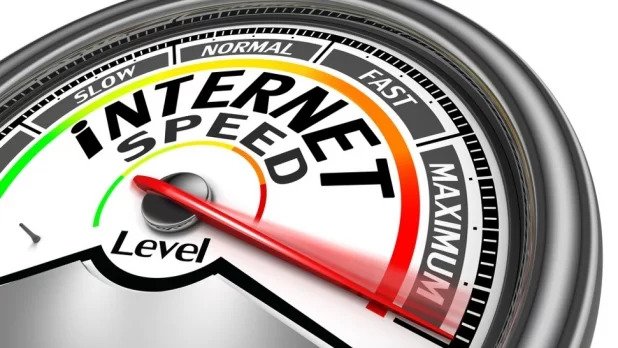The Difference Between Megabits and Megabytes

The two sound the same and even abbreviations look the same: MB for megabytes and Mb for megabits. But what are they exactly? How will you differentiate the two and how can you convert megabits to megabytes? Why is is it important to know the difference in choosing your internet plan?
The Difference Between Megabits and Megabytes?
It comes in how a computer works. A computer consists of millions to billions of mini transistors and each has only 2 settings which are on and off. On is characterized by a 1, and off by a 0. Every one of those transistor settings with a value of 0 or 1. is defined by a bit (binary digit). With two states similar to on and off, such as magnetic particle orientation (north-south or south-north) in a hard drive, this same system can be applied to everything.
A byte is eight bits of a collection. This number was chosen because it is enough to describe 255 characters by eight bits, which includes the whole upper and lower case alphabet, all the numbers zero through nine, and several special characters.
Computers evolved quickly beyond bits and bytes, of course, so prefixes were introduced to cope with increasingly larger numbers. 1,000 times bigger than bits and bytes are kilobits and kilobytes. Megabits and megabytes are 1,000 times larger than kilobits and kilobytes, whereas 1,000 times larger than megabits and megabytes are gigabits and gigabytes.
What is Mbps, then? Can a 100 Mbps access in one-second download a 100 MB file? Exactly not. The connection speed is calculated in Mbps, or megabits per second, in today's internet era (and increasingly Gbps, or gigabits per second). In MB, or megabytes, data is calculated.
Note that eight bits equal a byte. Similarly, a megabyte equals eight megabits. So the 100 MB file, in the example above is actually 800 Mb or megabits. Now it is obvious to see that in eight seconds, not one second, a 100 Mbps (100 megabits per second) link will actually download that file.
How about MBps? Currently, nothing. If instead of megabits, internet connections were measured in megabytes, then you would see the classification. However, they aren't. Connections, meaning megabits rather than megabytes, are calculated in Mbps. Confused still? Let's further break it down.
Megabits
Megabits are a standard unit, expressed as Mbps or megabits per second, for Internet speeds.
The basic building block for computer storage is a bit, and a megabit is equal to a million bits.
It measures data transfer speeds
Internet service providers provide service speeds, such as 100 Mbps or 300 Mbps, based on megabits per second (and increasingly gigabits per second, such as 1 Gbps)
To determine which internet service is right for you, knowing Mbps is vital.
Megabytes
A typical unit of data storage is megabytes or MB.
A million bytes equals eight bits, and a megabyte is equaled to eight million bits.
It is used to measure data. Like every digital photo, email, or movie you stream takes up a certain amount of data space
Megabytes (or gigabytes, which are 1,000 times larger) are used, such as hard drive space, to describe storage. They are often used to set data limits by many internet service providers.
Related: How much Internet Speed is Enough?
Why is it important?
Internet Service Providers (ISPs) list Megabit per second link speeds (Mbps). Data, however, is categorized into megabytes (MB). You could select an internet speed that is too slow for your needs or overpay for more speed than you need if you're not sure about the difference between megabits and megabytes. Your monthly data limit could also be misunderstood, which could be very costly because many ISPs charge a lot of money for data overages.
But how quickly does it need to be on your internet? That depends on what you do online and how many people share your relationship with you. It requires around 3 Mbps of normal video streaming. HD streaming and online gaming each require approximately 5 Mbps. YouTube streaming takes about 7 Mbps, and about 25 Mbps is required for 4K streaming.
In fact, to avoid buffering lag, streaming and gaming services attempt to preload. This implies that a YouTube video of 7 Mbps will potentially peak on a fast link at about 250 Mbps. These services are also excellent at downgrading video quality automatically to operate on sluggish connections, but when determining how much speed you need, it's something to consider.
When considering data caps, megabytes (or more frequently, gigabytes) matter. You can reach 1 GB of data if you watch five hours of standard-definition movies during the month. To hit the 1 GB mark, it takes 170 hours of social media interaction, or close to 7,000 emails.
It can be a little confusing to use megabits and megabytes, which could lead you to select an internet speed or data limit that doesn't fit for you. Only note that a megabyte is eight times greater than a megabit and that while data is measured in megabytes, internet speeds are measured in megabits and you should be able to decode all the data that your provider of internet services has to give.
Related Posts
 Internet Bundles
Internet Bundles
Finding Reliable Internet Without Overpaying
Compare the best internet providers near you. Learn how to choose reliable, affordable internet based on speed, price, availability, and real-w
 Internet Bundles
Broadband Deals
Internet Bundles
Broadband Deals
Cheapest TV Packages and Providers Compared 2026
Compare the cheapest TV packages from top providers in 2026. See channel counts, pricing, and bundle options to find the most affordable TV service for your home.
 Internet Bundles
Broadband Deals
Subscription
mobile phone plans
Internet Bundles
Broadband Deals
Subscription
mobile phone plans
Metro by T-Mobile Add-Ons Explained: Hotspot, International Calling & More
Learn how Metro by T-Mobile add-ons work, including hotspot data, international calling, and device protection. Compare features and choose the right mobile extras.
 Internet Bundles
Internet Bundles
Facts About Youtube That May Surprise You
Discover updated YouTube facts, user statistics, revenue insights, and video trends shaping global content consumption and digital marketing strategies today.
 Internet Bundles
Broadband Installation
cheap internet deals
Internet Bundles
Broadband Installation
cheap internet deals
Simple Steps to Self-Install Spectrum Internet Fast: 2026 Guide
Learn how to self-install Spectrum Internet step-by-step. Save installation fees, activate service fast, and optimize WiFi performance with this complete guide.